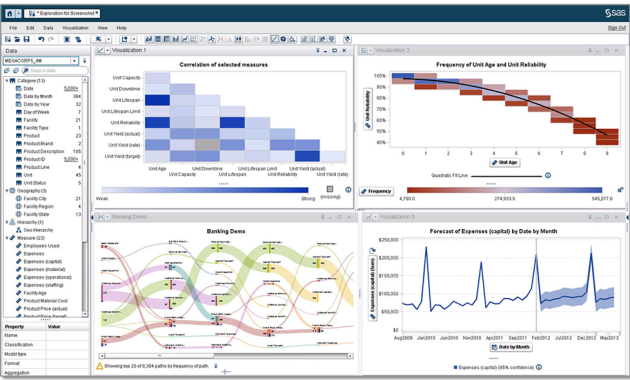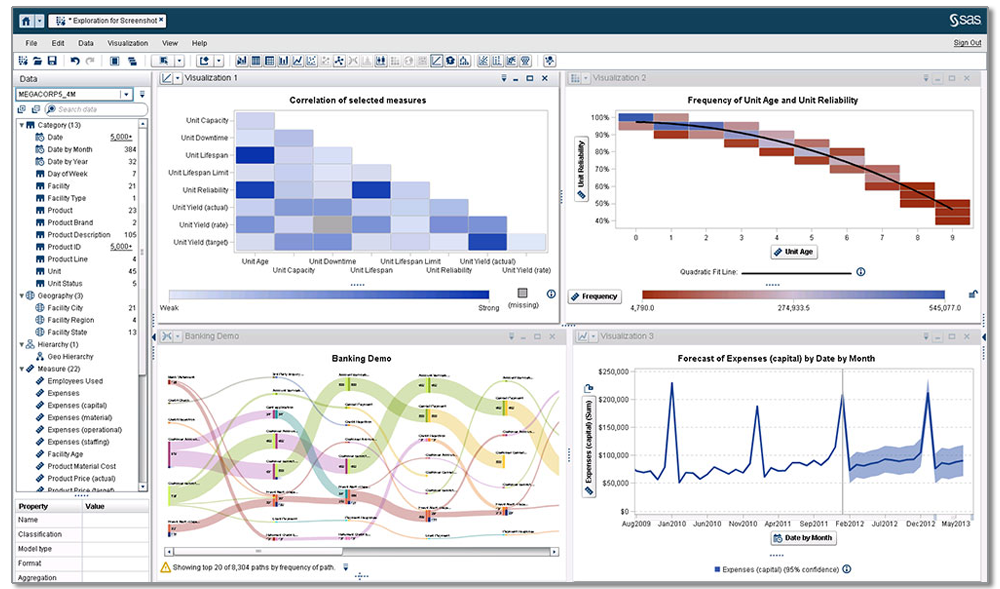
Business Intelligence Software That Tells the Whole Story: Unveiling Data-Driven Insights
In today’s fast-paced business environment, making informed decisions is paramount. Companies are constantly bombarded with data from various sources. This data, however, is often siloed and difficult to interpret. This is where Business Intelligence (BI) software steps in. It transforms raw data into actionable insights. This empowers businesses to understand their performance and make strategic decisions. This article delves into Business Intelligence software. It explores how it helps businesses tell the whole story and gain a competitive edge.
The Evolution of Business Intelligence
The concept of Business Intelligence is not new. It has evolved significantly over the years. Early forms of BI involved basic reporting and analysis. These were often limited to internal data. The advent of the internet and big data changed everything. Now, companies have access to vast amounts of data. This data comes from various sources. These sources include customer interactions, social media, and market trends. This data explosion necessitates more sophisticated BI tools. These tools can handle the volume, velocity, and variety of data. Modern Business Intelligence software offers advanced features. These features include data visualization, predictive analytics, and real-time dashboards. This allows businesses to make more informed and timely decisions.
Key Features of Effective Business Intelligence Software
Business Intelligence software is not a one-size-fits-all solution. The best software offers a comprehensive set of features. These features cater to the specific needs of a business. Here are some key features to look for:
- Data Integration: The ability to connect to various data sources is crucial. This includes databases, cloud services, and spreadsheets. Data integration ensures that all relevant data is available for analysis.
- Data Warehousing: A data warehouse stores and organizes data. This makes it easier to analyze and report on. It also improves data quality and consistency.
- Data Visualization: Visual representations of data are essential. Charts, graphs, and dashboards help users understand complex information quickly. Good data visualization tools make it easy to identify trends and patterns.
- Reporting and Analysis: BI software should provide robust reporting capabilities. This includes ad-hoc reporting, scheduled reports, and interactive dashboards. Advanced analytics features like predictive modeling are also valuable.
- User-Friendly Interface: The software should be easy to use. It should be accessible to users with varying levels of technical expertise. An intuitive interface simplifies the analysis process.
- Mobile Accessibility: In today’s world, access to information on the go is critical. Mobile BI allows users to view dashboards and reports on their smartphones and tablets.
How Business Intelligence Software Helps Tell the Whole Story
Business Intelligence software goes beyond simple reporting. It enables businesses to uncover the full story behind their data. It provides a holistic view of operations. This allows for more comprehensive decision-making. Here’s how:
- Identifying Trends and Patterns: BI tools can analyze large datasets. This helps to identify hidden trends and patterns. These insights can inform marketing strategies, product development, and operational improvements.
- Improving Decision-Making: Access to real-time data and key performance indicators (KPIs) empowers better decisions. Businesses can quickly adapt to changing market conditions and customer needs.
- Optimizing Operations: BI can identify inefficiencies and bottlenecks. Businesses can optimize processes and reduce costs. This leads to improved productivity and profitability.
- Enhancing Customer Experience: By understanding customer behavior and preferences, businesses can personalize experiences. This can lead to increased customer satisfaction and loyalty.
- Gaining a Competitive Advantage: In a competitive market, data-driven insights are essential. BI software helps businesses stay ahead of the competition. It allows them to innovate and adapt to market changes.
Choosing the Right Business Intelligence Software
Selecting the right Business Intelligence software is crucial. It is a decision that impacts the entire organization. Here are some factors to consider:
- Business Needs: Identify your specific needs and goals. What data do you need to analyze? What are your reporting requirements? Choosing software that aligns with your needs is vital.
- Data Sources: Ensure the software can connect to all your data sources. This includes databases, cloud services, and other relevant platforms.
- Scalability: Choose software that can scale as your business grows. Your data volume and user base will likely increase over time.
- Ease of Use: Look for user-friendly software. It should be accessible to users with varying levels of technical expertise.
- Cost: Consider the total cost of ownership. This includes software licensing, implementation, and ongoing maintenance.
- Vendor Reputation: Research the vendor’s reputation and customer reviews. Choose a vendor with a strong track record of support and innovation.
Implementing Business Intelligence Software: Best Practices
Implementing Business Intelligence software successfully requires careful planning. Here are some best practices to follow:
- Define Goals: Clearly define your business goals and objectives. This will guide your implementation strategy.
- Data Preparation: Clean and prepare your data before importing it into the software. Data quality is critical for accurate analysis.
- User Training: Provide adequate training to users. This ensures they can effectively use the software.
- Pilot Project: Start with a pilot project to test the software. This allows you to identify and address any issues before a full rollout.
- Ongoing Monitoring: Continuously monitor the performance of the software. This ensures it is meeting your needs.
Examples of Business Intelligence Software
The market offers a wide range of Business Intelligence software solutions. Here are some popular options:
- Tableau: Known for its powerful data visualization capabilities and user-friendly interface.
- Microsoft Power BI: A cost-effective solution that integrates seamlessly with other Microsoft products.
- Qlik Sense: Offers associative data modeling and advanced analytics features.
- Looker: A cloud-based BI platform that focuses on data governance and collaboration.
- Sisense: Provides a complete BI platform with embedded analytics capabilities.
The Future of Business Intelligence
The future of Business Intelligence is bright. Several trends are shaping the industry:
- Artificial Intelligence (AI) and Machine Learning (ML): AI and ML are transforming BI. They automate tasks and provide more advanced analytics capabilities. This includes predictive modeling and natural language processing.
- Cloud-Based BI: Cloud-based BI solutions are becoming increasingly popular. They offer scalability, flexibility, and cost-effectiveness.
- Data Democratization: The trend toward data democratization continues. BI tools are becoming more accessible to a wider range of users.
- Embedded Analytics: Embedding analytics into business applications is gaining traction. This provides users with insights directly within their workflows.
Business Intelligence software is essential for businesses. It helps them tell the whole story hidden within their data. By leveraging the right tools, businesses can make informed decisions. They can optimize operations. They can gain a competitive advantage. Choosing and implementing the right BI software is a strategic investment. It can unlock significant value and drive business success. Embracing the power of data is no longer optional. It is a necessity for any organization striving to thrive in today’s data-driven world. The right Business Intelligence software can be the key. It unlocks the power to understand the entire story. This understanding leads to better decision-making and business growth.
[See also: Related Article Titles]

